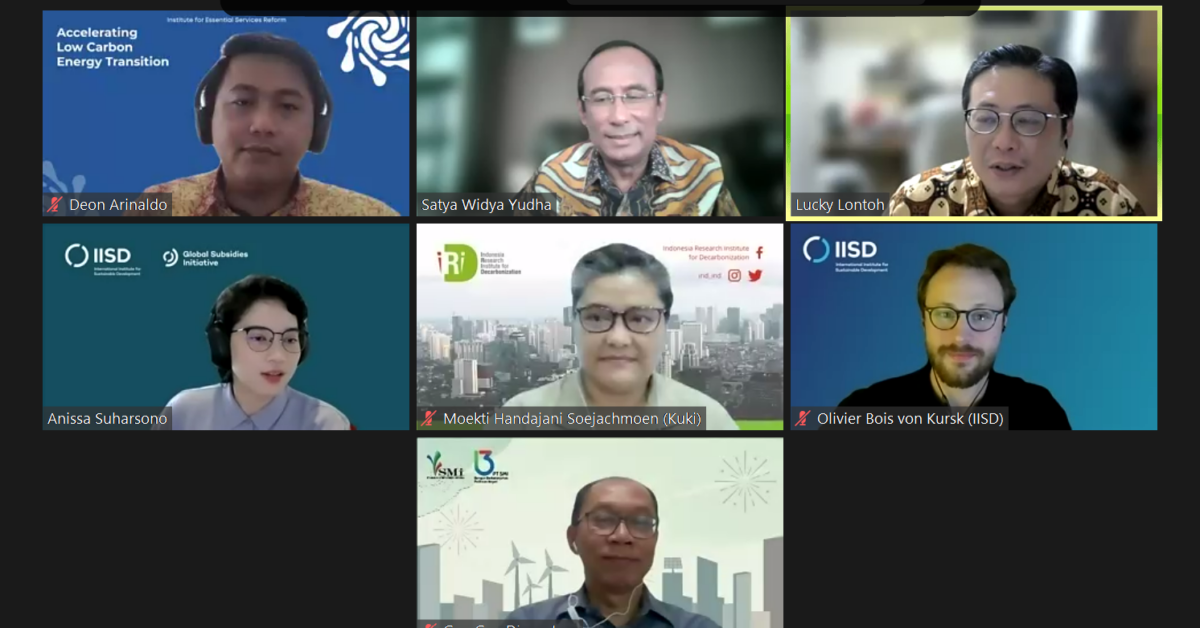Jakarta, March 14, 2023 – The Government of Indonesia (GoI) needs to set more ambitious targets to accelerate the transition to clean energy with decarbonization so that the increase in the earth’s temperature does not exceed 1.5°C. As a country that ratified the Paris Agreement, Indonesia is legally bound to integrate its policies to achieve carbon neutrality by 2050. Deon Arinaldo, Program Manager for Energy Transformation, Institute for Essential Services Reform (IESR), explained that to support the global target of 1.5°C, emissions of Indonesia’s energy system must peak before 2030 and reach zero by 2050.
“For this reason, the transition to the energy system needs to be planned and started from the beginning. The electricity sector is most ready to transition because renewable energy generators are available with abundant potential and are competitive with fossil energy,” said Deon at the Implementation of a Just Energy Transition in Indonesia event organized by the International Institute for Sustainable Development on Tuesday (14/3/2023).
Quoting the IESR study entitled Deep Decarbonization of Indonesia Energy System, said Deon, the energy system transition in Indonesia needs to achieve three milestones, including 100 GW of solar panels, no new PLTU except for 11 GW included in the development plan, and 2 GW of prosumer solar panels in the first stage in the 2018-2030 period, then in the second stage, namely 100% renewable energy, utility-scale battery storage, starting to install a 2 GW electrolyzer and CO2 storage and direct air carbon capture (DAC) in the 2030-2045 period, then in the third stage, i.e., continuing to use 100% renewable energy after 2045.
“To achieve a transition to the energy system, renewable energy, especially solar, has a major role to play in Indonesia’s electricity generation in a carbon-neutral scenario,” said Deon.
In addition, Deon emphasized that the energy transition at least requires a transformative approach to all aspects, from policy, economic, and social to technical. For example, in the policy aspect, it is necessary to consider more apparent steps, not just BaU (business as usual). As a developing country, Indonesia can also take a role in the energy transition. Still, on the other hand, there is pressure for developed countries to provide technology, funds, and assistance.
“To support the 1.5°C target, we need to change our perspective, work, and energy system. For this reason, a stronger message is needed in energy planning and policy,” explained Deon.
On the same occasion, Satya Widya Yudha, a National Energy Council (DEN) member, emphasized the need for climate finance as the main driving force for achieving carbon neutrality. For this reason, Indonesia needs help from other countries to achieve carbon neutrality by 2060 or sooner. To achieve this target, said Satya, Indonesia also has a strategy for decarbonization in electricity generation.
“We still try to use fossil energy still but with clean energy technology. However, we also continue accelerating the use of renewable energy, such as electric vehicles and hydrogen development. Until renewable energy can be used entirely, “explained Satya.

